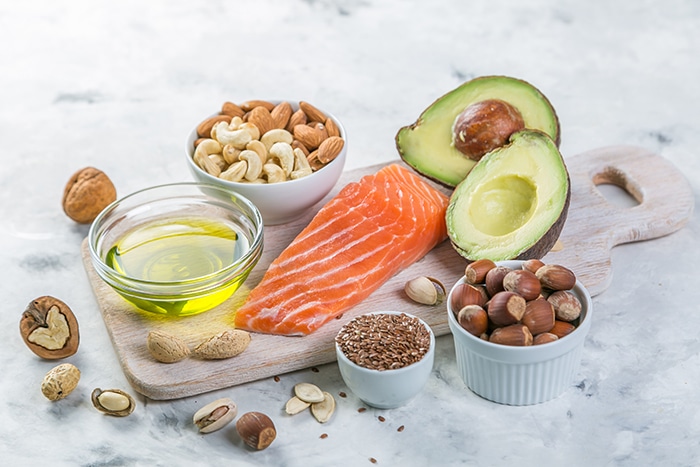By: Heather Wright, FNP-C & Red Mountain Clinical Assistant Director
Keto eating is the diet du jour of the year. The diet was originally prescribed for patients with epilepsy, however over the last decade it has gained notoriety for providing quick weight loss. Keto eating may look like a familiar diet because it is a reappointed namesake to the South Beach, Atkins diet, and Scarsdale Diets.
Ketosis is a natural process that our body goes through in order to survive when our food intake is low. When our body is in ketosis, it fundamentally shifts the way our bodies run. Normally, cells use blood sugar for fuel which is readily available from carbohydrates that we consume through our typical diet. When there are no carbohydrates in the blood stream, our bodies break down stored fat and convert it to ketones. It is important to note that ketosis is meant to be a short-term survival process, not a diet.
It takes the body anywhere from 2-4 days to shift from burning carbohydrates to ketones. In order for this to happen, a person must keep their carbohydrate intake low; on average, that means you will consume 20-50g of carbohydrates per day to stay in ketosis. This is a small number of carbohydrates considering that an average slice of bread or one medium apple each have 20-25 grams of carbohydrates. One cup of 2% milk or 3 tablespoons of cereal each contain approximately 12 grams of carbohydrates.
Unfortunately, not only is it difficult to maintain such a low carbohydrate content in our daily diets, but most people eating “keto” will compensate for the calories by consuming more fat than usual. This often translates to an increase in saturated, unhealthy fats & increase in inflammation in the body. Also, keep in mind that fat contains more than twice as many calories per gram than the other macronutrients.
As with any diet, consistency is key. Eating high fat foods sounds fun, however it can actually be quite difficult. Keto eating can become harmful when you don’t fully stick to the diet plan. If you introduce carbs over the allotted amount on a regular basis, you won’t be able to get in to or stay in ketosis. As a result, you are now eating high fat, protein and carbohydrates. This will cause weight loss to cease and increase your risk for heart disease, diabetes and a host of other diseases.
Potential Risks of the “Ketogenic Diet”
- Nutrient deficiencies- i.e. Magnesium, Calcium
- Thyroid conditions (hypo)
- Liver problems
- Kidney problems
- Constipation
- Headaches, lethargy, achiness & brain fog
- Reduced fertility
- Inflammation
- Free fatty acid insulin resistance – When this happens, your body is unable to use glucose as easily. This can lead to insulin resistance and eventually diabetes.
Common Complaints
- The diet can become difficult to follow long term
- People may consume too much protein and not enough healthy fats
- Saturated fats may be too high- A diet high in fat should come from healthy fats but most patients tend to consume saturated fats.
- Increased carbohydrate intake stops ketosis and reverts back to using carbohydrates for fuel
We offer an exclusive Medical-Grade Supplement called Keto-aid which helps provide immediate energy for exercise while also reducing hunger. Plus, this supplement may help elevate ketones without carbohydrate restriction. Ask a staff member about how this supplement can benefit your overall health and weight loss progress today!







